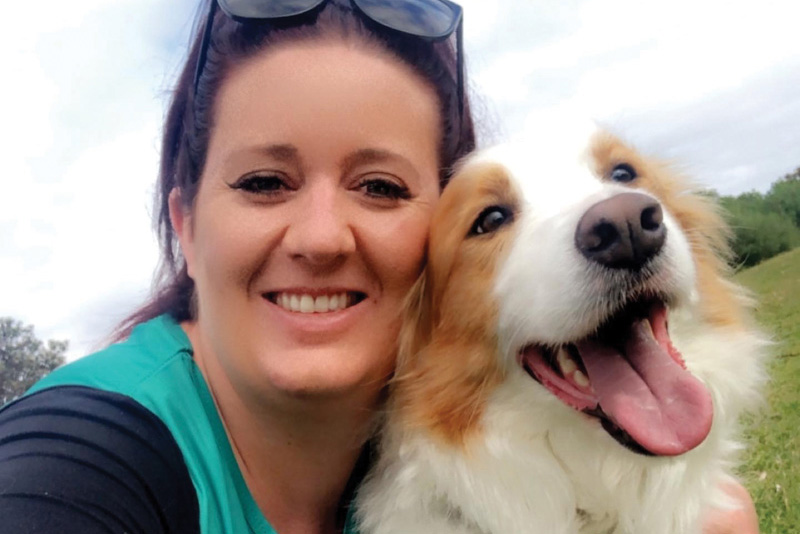REBECCA Maitland was looking forward to a dream trip to Europe in 2016 when a stroke changed her life.
Maitland’s dog Nala helped her regain consciousness by licking her face. The Frankston resident then managed to use her phone’s voice activation to call an ambulance.
Six years on from her stroke, Maitland has shared her story to shine a light on one of the lesser known long-term effects of stroke. Maitland now lives with post-traumatic stress disorder.
“My technology and my dog literally saved my life. At first my family were told to say goodbye. It took weeks of recovery at the Monash Hospital Stroke Unit before there was hope for more than just my survival,” she said. “Because my phone saved my life, I have quite an attachment to it. I get a lot of anxiety when my battery starts to go flat. I also feel quite out of my comfort zone when I’m away from home and too far from help if anything were to happen. Every time I get a headache or any sort of neurological symptom, I freak out thinking it’s happening again.
“I like to do things that distract me and keep me occupied. I’ll get out of the house and treat myself to a coffee, have a cup of tea with my neighbour or even play games on my phone.”
Maitland has now retrained from a paramedic to a phlebotomist.
Stroke Foundation CEO Sharon McGowan says that resources are available to stroke survivors suffering from long-term effects. “We know no two stroke journeys are the same, but it’s important for survivors to know we’re here to help every step of the way. Stroke Foundation has a range of support services for survivors, families and carers which includes our confidential support service, StrokeLine,” she said. “It’s wonderful to see the beautiful connection Nala and Bec have which was not only crucial during Rebecca’s stroke, but also in her ongoing recovery.”

